My experience as a UK citizen getting married in Morocco
A remnant of the French colonial legacy of terrible administration, crossed with an archaic reluctance to see Moroccan women married to foreigners, the process for a foreign national to marry a moroccan citizen “marriage mixte” promised to be an unforgettable dash between 3 cities in 7 days in between consulates, foreign ministries, courts and registrars.
I had taken a week off work (Wednesday - Wednesday) and our goal was to obtain a signed marriage certificate by the end of the trip, thereby freeing us to apply for the UK spousal visa. Therefore, we essentially had 4 working days to complete the process.
Before I left
Despite a terrible tendency to leave things to the last minute, I had read up on the process in the preceding weeks and gathered the following documents:
- Employment letter stating my position and salary
- Scan of birth certificate, it turned out later that I needed an original version
- UK certificate of registration (since I was born in Pakistan and am now a UK citizen)
- DBS criminal record check, takes a few working days to arrive £25 (you can also obtain a free ACRO police check for free, but you need to order one 4 weeks in advance which I didn’t have time for)
- Last 3 months’ pay slips
- Credit card bill as a proof of address
I had also made an appointment at the British consulate for the first morning of my trip in Marrakesh, in order to obtain an affidavit that I was free to marry. You can also do this in Rabat but short notice appointments are harder to come by.
Wednesday
I landed in the red city of Marrakesh on Wednesday evening to attend my appointment at the British consulate the following morning. Waiting for me at the airport was my lovely fiancée. We had decided to marry in Morocco, and not in the UK, because of the £2000 fee for the UK “fiancé visa” which would then followed by the £2500 “spousal visa” free. Whilst we accepted that there’d be an efficiency cost in marrying in Morocco, financially it was a no-brainer.
Thursday
We woke early to attend the 9am appointment at the British Consulate, where we needed to obtain a signed affidavit certifying my ability to marry & certified copy of passport. This was surprisingly smooth. Couped away on the 5th floor of a discrete building, the door to the British consulate is manned by a burly security guard who checked our passports (my fiancée needed hers too) and waived us through to see a commissioner. The young man was polite, well spoken and thorough, and within 45 minutes I had my certificate. As we paid the £75 fee at the Consulate, the young commissioner wished us on the way saying: “Good luck to you. Most couples I see here have a big age difference, so I’m happy to see a genuinely young couple.”
With this slightly strange wish and our affidavit in hand, we jumped in the car and sped toward Rabat, 3 hours drive to the north.
Once in the car, we got to work on our next problem, translating my documents from English to Arabic. I really recommend having this done before you arrive, as it can take up to a few days.
My fiancée had found a website, https://www.atajtraduction.asso.ma/, which lists the contact details of all legally recognised translators in Morocco. As we scrolled down the list, calling one by one to find out whether anyone could translate 5 documents by end of the day, we realised that we had left things a little late. We finally stumbled on a Ms Sanaa (contact details) in Casablanca who agreed to do it by 6pm the same day for 1000 MAD (about £80).
We arrived in Rabat and headed to the Ministry of Justice (more accurately, a little building next to the Ministry called “Casier Judiciaire”) to get my Moroccan criminal record. I was handed a ticket and told to come back 2 hours later. We jumped back in the car and made for the family court in the place my fiancée was born, in nearby Salé, to get her criminal record. We then headed back to the Ministry of Justice where, I picked up my clean Moroccan criminal record (to my relief!).
But we weren’t done in Rabat just yet. We then drove to the nearby Ministry of Foreign Affairs to have both my affidavit and certified copy of passport (issued by the Consulate in Marrakesh) stamped. We could finally leave Rabat for Casablanca to pick up our translated documents from Sanaa (which we had earlier sent her by email). We needed to pick them up in person because the translator needed to see the originals before she could send you the translations.
To round off the day, we made a trip to a local newsagent to make 5 photocopies of every document that we’d hoarded so far. We then stopped by a doctor’s office, where we had made an appointment, to get a certificate indicating we were both in good health. An interesting side note: given my arabic name and dark skin, most people we come across speak to me first, before seeing my clueless stare and switching to speak to my fiancé. Beyond that, educated Moroccans speak excellent English (much better than their former French colonisers) and waste no time in showing off their skills once they realise you’re an anglophone. The doctor was no different, chirping away to us in a thick American accent as he wrote out our note, without having actually examined us at all.
I have to say that despite the rushing around, it had all been quite smooth and satisfying thus far, we were feeling good about ourselves ourselves. Tomorrow was to be a different story.
Friday
The day started at a local photography shop where I made 8 passport sized photos. We took these and our now satisfyingly bulging folder of documents over to the Casablanca family court and waited our turn in a short queue. 20 minutes later, a nice lady ushered us inside and started inspecting our documents. The discerning look on her face confirmed my greatest source of anxiety regarding the process. She was suspiciously eying up my scanned birth certificate.
I was born in Pakistan in ’91 and emigrated to the UK in ’92. I have never seen my original birth certificate, and my parents have no recollection of its whereabouts. A few years ago, my father pulled a few strings to have a replica drawn up and the scan emailed over to me - this was the document i had provided and, clearly, it was not sufficient. The kind lady, who felt sorry to see our plight, sent us into the judge’s room for us to try to negotiate with him. The moustachioed judge recommended that we call the embassy in Pakistan to at least try to get our hands on a sworn affidavit, because otherwise he simply couldn’t send our file to the next authority which had to validate it: the police.
Dispirited, we left the court and called the embassy. Nothing doing. They told us to submit a request to the Pakistan Overseas citizenship department, and that I could expect to have a certificate in 7-10 days. 7-10 days! We simply didn’t have this kind of time. I had already taken a week’s leave and couldn’t afford remain in Morocco beyond next Wednesday. We called the British embassy, predictably, they couldn’t help us either.
Our last roll of the dice was to go and see the judge, explain the unsuccessful actions we had taken, and hope that he would take pity on us.
It was our lucky day. After sitting in his office with our best puppy-dog eyes for 10 minutes, he told us to come back on Monday and he would help us to find a solution. It was the best we could have hoped for and we left the court feeling relieved.
But things were about to get even luckier. We had almost reached the car when a man tapped me on the shoulder and told us to go back. Upon entering the court we saw the stocky figure of the judge who asked: “so, you just left?”. The heroic judge then instructed the clerk to complete our dossiers and, just like that, we were back in the game. Lesson learned during this experience: in the majority of cases, as long as you’re sincere and truthful in your efforts (and your puppy dog eyes are on point), authority figures in Morocco will try to help out.
What ensued was what could best be described as a ping pong of our folder between several floors and departments of the family court and the police station. We’d heard this could be a bit painful, but not in our case. My fiancée was instructed what to do at each step (in arabic, I had given up trying to follow at this point) and we flitted between each office getting various stamps and signatures on our documents.
We were then told to take the folder over to the police department, this was unusual because I had read that the court takes the document to and from the police department and this can take a few days. But hey, I bet we could get it over there faster than they could.
So we drove over to the police, situated in the regal building you can see in the below photo, where a bit more ping pong ensued. Then we were taken to see the man that would carry out the “investigation” as to whether this was a legit marriage. It wasn’t exactly a grilling. After seeing us for 10 minutes and asking a few questions about my background, he stamped our paper and told us to take it to one final office. The man there gave us what seemed like our 1000th stamp of the day and told us the folder was to be sent to the Court of Appeal in Rabat and that we should come back on Tuesday morning to get the final authorisation.
Phew. A hectic day but we were looking in good shape.
Monday
We’d been told to report to the police headquarters on Tuesday morning to see if our dossier had made its way back from central police in Rabat. Given that that wouldn’t leave us any buffer at all (I had my flight to the UK on Wednesday morning) I paid the police officer in question a visit to check on the whereabouts of our folder. He confirmed our folder still hadn’t made it back from Rabat and told me to come back tomorrow (Tuesday) at 10.30am. I took this as a guarantee that the folder would have returned by then, but that turned out to be optimistic.
Tuesday
In the morning, my fiancée and I were buoyant as we walked to the police headquarters knowing that this was our “big day” when we would hopefully be legally married.
We were deflated to learn that our folder still hadn’t made an appearance. But, if we’d learned anything during this process, there was always a way to speed things along given our circumstances.
We explained that I had to leave the country the following morning, and our case was escalated to the Chief of Police. We were ushered into a large office where well-dressed man with striking orangey / hazel eyes sat behind an enormous desk. Once again thinking that she was the foreign one, he turned to my fiancée and asked in perfect English “So, what can I do for you?”. He heard our situation and called in a couple of members of staff. The Chief’s intervention was decisive. I noticed at this point a phenomenon I’d often seen in my native Pakistan: a marked behaviour shift toward us once we had the backing of a powerful person. It was as if we’d been bumped up a social class in the space of minutes. Now the same inspector that had given us short shrift, was at our beck and call. He took my fiancée’s phone number and promised to call her within the next 30 minutes. He did, and he had some good news. The central police in Rabat had called and given us the OK, we could proceed to the family court to obtain the authorisation.
Once at the family court, we bounced customarily between a few different rooms and we had our authorisation within 20 minutes! Such a relief. We now needed to find an Adoul (a registrar) in the city that would marry us at short notice. One adoul told us he was fully booked for the rest of the day, so we went to another close to the Hassan II mosque. The old man told us that our marriage would be more “religiously secure” if my fiancée’s father was present to sign, but he was currently in my fiancée’s town, Kenitra, and would not be able to get to Casablanca until the evening. I had to leave Casablanca at 9am the following morning, so this was our only window of opportunity. In a final stroke of luck, the adoul told us that he could see us at 10.30pm that evening (after the night prayers).
We returned that night with my soon-to-be father in law and my fiancée’s uncle (who proved very useful in holding the camera whilst my parents watched on through FaceTime). In a sort of ceremony that seemed to take at least 1h30, we signed the papers and were officially married. Hooray!
Congratulations and all my best wishes for the couple.
Administration in the French way, the great subject, and whatever it is in France or in an old country subject to their laws, it has always been a nightmare. But rest assured anyway because there are countries where it's even worse.
Dilly228 wrote:A remnant of the French colonial legacy of terrible administration, crossed with an archaic reluctance to see Moroccan women married to foreigners, the process for a foreign national to marry a moroccan citizen “marriage mixte” promised to be an unforgettable dash between 3 cities in 7 days in between consulates, foreign ministries, courts and registrars.
I had taken a week off work (Wednesday - Wednesday) and our goal was to obtain a signed marriage certificate by the end of the trip, thereby freeing us to apply for the UK spousal visa. Therefore, we essentially had 4 working days to complete the process.
....
we signed the papers and were officially married. Hooray!
Hi and welcome to the Forum.
Wow; first off, please forgive my editing your post (only for brevity) in this response and my congratulations to both you and your wife on your wedding.
On behalf of us all on Expat.com, thank you for taking the time to write the diary of your journey. It will no doubt be invaluable to the next person contemplating what you've just achieved and make no bones about it, it was a considerable achievement.
Again, thank you and my regards to all your family.
Cynic
Expat Team
Thank you sir for your detailed experience in the marriage process.
I am from UK and have noticed you completed the process which I have previously read takes no less than a week in 3 working days! Congratulations to you.
Is there any advice you can give to anyone who is about to embark of a similar journey?
Thank you for the post. Very informative and helpful as I am looking to get married soon. My fiancee said once I get the affidavit from the British embassy that I need 20 days to get married due to the amount of paperwork is needed to sign for! I was shocked at the thought so please to read you did This in a week! Congratulations to you
i've been in a relationship with a Moroccan lady for 4 years and in August 2022 we got engaged, i live in UK she lives in Morocco.
i've been led to believe getting married is not straight forward and would welcome and telephone numbers, addresses or any advice regarding our marriage, we are hoping ? to marry in 2023.
any correspondence would be welcomed.
thank you
@Karim52 hi may i ask u please for the certificate of islam can he convert in uk and get one from from an approved mosque there ?
@Fati93 yes, but the judge if you want, we still request a certificate from a Moroccan ‘adl
British Marrying a Moroccan
Before Leaving the UK:
Buy a folder and put these documents in it:
1. Certificate of no impediment (from local registry office in UK). This takes at least 28days, because they need to display a public notice of intent to marry for 28days. for my council this was £30
2. Police certificate (ACRO) This usually takes about 15 working days but can be longer. At the time i needed it, the price was £60 https://www.acro.police.uk/s/
3. Birth certificate
4. Letter from employer stating salary.
5. Payslips 3 months.
Do my documents need to be legalised, some judges yes, some judges no. I didnt go out of my way to legalise anything that wasnt already legalised, the documents from the embassy were legalised at the embassy and that sufficed me. But I cant guarantee it will be enough for you.
Book appointment at British embassy in Rabat for a signed affidavit of marital status and a certified copy of your passport. They'll require details of both people getting married. Pay online and they will send you a link via which you will need to book an appointment, you will need to check everyday to see if any appointment slots become available. These appointments are usually 3months later. When I booked, the price for appointment, legalisation and translation to french was £80
https://www.gov.uk/marriage-abroad
You should also complete a Moroccan criminal record check online before leaving the UK, they can complete the checks and send the certificate to a local court to be collected by the partner who is resident in Morocco https://www.consulat.ma/en/criminal-record-foreigners
Locate a translator online close to your city of residence. Send them copies of all documents listed below. Ask them to translate to Arabic. Some judges accept French translations, some will not. But all will accept Arabic. I was charged approx 200-250MAD per document which isn't great but is fair. https://www.gov.uk/government/publicati … in-morocco
Send translators copies of all documents before you leave the UK to save time. Tell them you will send two more documents once you get them from the embassy in Rabat and you will need them translated the same day. Send them pictures of the 2 documents from the Embassy as soon as you receive them via whatsapp.
In Rabat
Arrive in Rabat for an appointment at the British embassy to get: Certified copy of passport. Certified affidavit for marriage.
Then go to the Moroccan Ministry of Foreign Affairs on Rue De Tetouan (street name), Rabat, for the certified copies from the British embassy to be certified again, by a Moroccan Govt official. After this ministry of foreign affairs; make your way to the translator and show them all the original documents so they can authenticate and give you your translations.
Your folder should by now include each document listed below paper clipped to its arabic translation. Make 5 copies of each document and its translation and make 5 separate folders containing 1 copy of each document.
1. Certificate of Islam (from a local Moroccan court advocate known as an Al-Adl).
2. Certificate of no impediment (from local registry office in UK).
3. Police certificate (ACRO):
4. Birth certificate
5. Letter from employer stating salary.
6. Payslips 3 months.
7. Certified affidavit Capacity of marriage from Embassy.
8. Certified Copy of passport from Embassy.
9. Moroccan criminal record.
10. Certificate of general good health by Moroccan Doctor
11. 6x Passport pictures.
In your partner's city
Now you go to the family court in your partner's locality to show a family judge your current paperwork which by now should include the above documents.
One of your folders will contain the originals, this is the folder you give the judge.
He will read them through and sign off. At which point the court will issue a document which you should make a copy and add to each folder. This document you need to take to the police, it permits them to start further background checks (even though you already have Moroccan and British Criminal record certificates), this may take from 5 - 15days, there is no certainty as with everything in Morocco.
Once this background check is complete, your documents are returned to the local court from the police. You will have to return to the court where a judge may ask you some questions like where you met and proof that you are a muslim etc and then FINALLY give you permission to marry.
You'll then go to a local court advocate known as 'Al-Adl' who will perform the ceremony, issue the marriage contract and apply for the certificate.
Finally, congratulations! Make sure I get an invite to the wedding!
@Karim52 ty for all details its very helpful i have question what's better: hire "adoul" to do the job fast in the court or we can do this fast by ourselves?
@Fati93 I will definitely suggest taking Adoul because they work every day with the court so they know the people working there and process.
@Karim52
As a UK person planning to marry in Morocco as you have done, what did you find was the most unexpected difficulty in the process? And any further advice apart from your detailed description you can give?
@Dilly228
Hello, I have been reading your summary with getting married in Morocco, I am also a british citizen and wanting to marry my partner here. I understand all, however when I try to book an appointment at the embassy this seems impossible, I was booking for the next available appointment and I have gone as far as February. How did you book your appointment and how long did you have to wait before one came available please?
thank you
@Karim52
Thank you for your wonderful details, I am a Uk citizen planning to marry my Moroccan fiancé, I understand the procedure and documents that I have to produce but please could you tell me what documents my fiancé has to provide.
JazakAllah khair
@Dilly228
hey im having a really difficult time marrying my fiance in morocco seems almost impossible as i keep getting sent back and forth between cities and between the uk and morocco. i got all these steps done and gathered all documents then when i went to a translator he refused to translate my documents (work and payslips and proof of address and DBS) as they were ‘not legalised’ what does that even mean how do i get them legalised i dont understand anything anymore and now my affidavit from the british embassy in rabat has expired. please someone help 😔😔😔😔.
@Yasminx u need appostile stamp on it from uk and thats legalised them ( ur birth certficate and DBS check ) and the payslips should be in headed papper and signed this is what we did anyway and i think maybe change a translator if he rejected u again
@Fati93 Salaam. Where did you get your documents apostled as it says on the gov website you cannot get them apostled?
You cannot get an e-Apostille for:
birth, death, marriage, civil partnership and adoption certificates, or any other document from the General Register Office
ACRO police certificates for England and Wales
Disclosure Barring Service (DBS) certificates for England and Wales
@Yasmin21https://www.hagueapostille.co.uk/ this is where my husband did the apostile
@Fati93 thank you. So only these two documents need to be apostilled. Does the divorce decree absolute have to be? Also @dilly you mentioned that they ask for your fiancée's details when booking the appointment. They didn't ask for my fiance details. I went through this link...https://www.book-consular-appointment.service.gov.uk/TimeSelection?location=52&service=13
@E J C95
hello, how did getting an appointment go if you don't mind me asking, we can't seem to find anything.
Assalaamu 'alaykum and hello all,
After reading a bit on here, I'm finding that there are different information; some saying you need this and others saying you don't but that's understandable as each circumstance and experience is different.
I have a few questions if you don't mind clearing it up for me please.
1) one thing I keep seeing people disagree about is that documents need to be apostilled/legalised here in the uk.
- what needs to be legalised?
- where do you do it?
- how much does it cost?
2) police check:
- which police check should i use; ACCRO or is a DBS check sufficient?
3) original documents:
- do i bring my originals as well as copies?
- how many copies of each document do I need to make?
- do I make copies AFTER it has been translated?
- do translated copies need to be certified/legalised?
4) birth certificate
- I don't have one; can I bring certificate of naturalisation?
5) embassy appointments:
- I know there is a long wait for it; what's the best way to go about finding one?
- is there a certain time or day they post?
6) any advice that helped your process
sorry for the questions but I thank you in advance.
best of luck !
@batbouta1920
Salaam
I share my experience below based on capacity to marry in Marrakech - other cities may vary. If you are unsure, ask your partner to go to the local court and ask for the information (and a list of what documents are required) That is what we did.
1) one thing I keep seeing people disagree about is that documents need to be apostilled/legalised here in the uk.
what needs to be legalised? - Nothing in the UK - Only decree absolute if this applies
where do you do it? FCDO approved apostille service/solicitor
how much does it cost? depends where you are based - up to £120
2) police check:
which police check should i use; ACCRO or is a DBS check sufficient? DBS is suffice. We asked the court, adoul and the lady who was translating my documents as I also brought my ACRO report with me just in case and suggested I trabslsate it. The lady said no, and it was accepted.
3) original documents:
do i bring my originals as well as copies? - You must bring all of your original copies dated within three months of the date of your appointment
how many copies of each document do I need to make? 5
do I make copies AFTER it has been translated? Yes - after translation. 5 of each and 10 passport photos (we made 6 photocopies as a back up)
do translated copies need to be certified/legalised? - both your affidavit and certified copy of passport (issued by the embassy in Rabat) needs to be stamped then translated into arabic - by the same translator who translated your original copies. Send the above on the same day so it is ready for the following day.
4) birth certificate
I don't have one; can I bring certificate of naturalisation? Not sure (ask the court)
5) embassy appointments:
I know there is a long wait for it; what's the best way to go about finding one?
is there a certain time or day they post?
It's a long wait however, be persistent, they usuallg update on a saturday or sunday morning around midnight and on a wednesday morning (this may have changed but that's what helped me) also, check for appointments during the day, theu do come up. Do not make more than one appointment or they will cancel all of them.
https://www.gov.uk/marriage-abroad
Rabat Appointments: https://www.book-consular-appointment.s … service=13
Marrakech Appointments: https://www.book-consular-appointment.s … service=13
6) any advice that helped your process
The informaton on this forum helped me. Some things that helped.
- Go to the local court for information - checklist of the documents required to marry
- Have all documents tranlated in morocco before your arrival - other than the ones I aforementioned
- We drove to Rabat as it was early morning but getting the train is easier (if we had a later appointment)
- If you have a motorcyle this helps going back and forth with documents in your city (rather than a car) there will be alot of it and we want to do things quickly
- Offer the police 50 dirham here and there to speed up the process for you!
- Make sure the doctor issues a pregnancy certificates and general health certificate in arabic (regardless if they say French is suffice - it is not)
Hope this helps
All the very best to you
@Yasmin21
salaam, thank you very much.
I do have a decree absolute that was sent to me electronically. I will look into getting this apostilled.
The documents that need translating, can I send them ahead of my embassy appointment and get them translated?
May I ask how do you go about finding a good translator? how much does it cost per document?
what's the going rate? I found a list of translators from the GOVuk site, are they okay to use?
subhanAllaah I found an appointment after I posted my post, after midnight around 3am. I have it booked for September in Rabat inshaAllaah.
this forum has been very helpful. Now I have more than a rough plan of the process. I feel a little at ease.
thank you again for replying back to me.
Make your relocation easier with the London expat guide
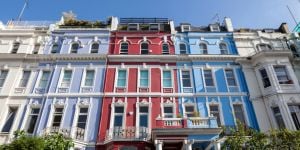
Accommodation in London
With a surface area of 1,572km² and thirty districts to choose from, London has thousands of homes available ...
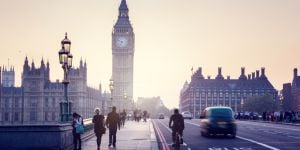
Living in London
So, you're considering London? Or perhaps you've already made the leap and you're now wondering what ...
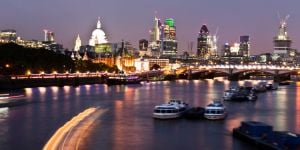
Top things to do in London
No matter what your definition of fun is – get ready to feel active, inspired, and creative in London. ...
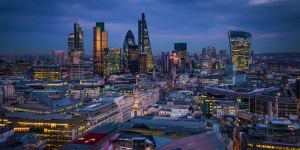
Work in London
London's job market is one of the most competitive and diverse in the world, attracting talent from across England ...
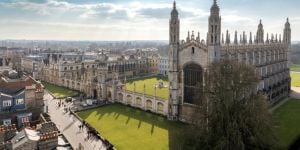
Study in London
Studying in London is probably the best decision you will make for your professional and personal development. For ...

Networking in London
Building a social and professional network as an expat in London is vital to achieving the perfect work-life ...
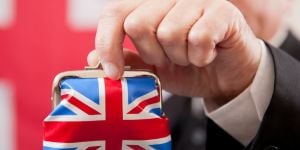
Cost of living in London
London forms part of the top ten most expensive cities to live in for expats. However, the cost of living varies ...

Buying food in London
London is a city that offers many choices, which makes food shopping overwhelming. The quest for the right ...
Forum topics on formalities in London




